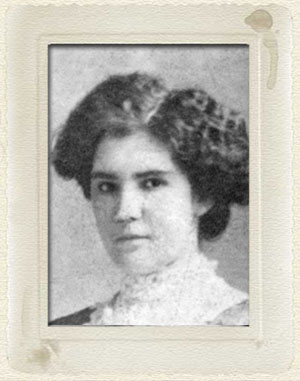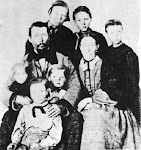2.04.2010
(53) Zemira, Caroline at Dry Valley
It is from Zemira’s diary and letters that we get added knowledge of his daily tasks, his talents, his leadership ability, and positions he held, his faithfulness and diligent activity in the Church, along with the more detailed and intimate aspect of his character—his thoughts, feelings, and beliefs; and of his families’ life, and the areas in which they lived. From history books we learn of the political turmoil in southern Utah, difficulties with the Indians, privations and toils of the Saints to subdue the water and the land. Zemira doesn’t emphasize these, but mentions them casually, as day-to-day occurrences.
His wife, Caroline and her children were living with him at Dry Valley in 1872. They lived in a dug-out for awhile, then Zemira moved the log cabin they had at Panaca, to Dry Valley, a distance of 12 miles. Almeda Eve was born there March 20, two of his children were baptized and confirmed (Arletta and Susan), and the baby, Almeda, was blessed on April 21.
While living at Dry Valley, Zemira did many different types of work. The forepart of his diary lists the price of many goods. He traded, bought and sold animals, wagons, wood, foodstuff, hay, and handled quite a bit of money for those times. This coincides with Arletta’s history where she says her father bought cattle and moved to Dry Valley where there was good feed for his stock.
Zemira doesn’t mention his sons helping him with his various work, and Caroline’s sons George Edwin 7, and Daniel Whitmore 4 years of age, really wouldn’t be much help yet; however pioneer wives and daughters were handy and helpful. Also, as Arletta stated: “My father’s brother, William and family who were also pioneers joined us at this place and lived here until we went to Panguitch.” Undoubtedly the brothers would work together when needful.
In June of 1872 Zemira tells of making a contract with the Meadow Valley Mining Company for 1,000 cords of wood at $5.25 per cord, which was a big undertaking, taking1-1/2 years to complete. Incidentally, it’s very difficult to haul wood by oneself.
The interim between January 1 to November 30 of ‘73, at which time Zemira moved Caroline’s family to Panguitch, was a busy and interesting period.
Writing about his work while in Dry Valley, he mentions the following: “Went to Eagle Valley for a load of hay; hauled wood, mended shoes, moved two families to Boullionville, moved a cabin for a man; hauled several loads of hewn timber to Pioche from the sawmill; worked on water ditch; dug potatoes at Eagle Valley; planted potatoes and corn.”
Other activities were such as: getting oxen and horses shod; mending harnesses, business trips to Panaca and Pioche; repairing wagons; writing letters, mending shoes, fixing road. One interesting historical item which he recorded on January 28, 1873, was: “Worked on road, today the Engine on the Pioche and Bullionville Railroad first made its appearance in this valley.”
While at Dry Valley, he attended Church quite regularly, having to travel to Eagle Valley to do so, and his family likely went with him.
Also, while there he had quite a bit to do with the law and court proceedings, both from his own complaints, and serving on juries. He had quite a bit of trouble with his animals getting lost, stolen and being poisoned by the tailings from the Meadow Valley Mining Co. He was summoned to appear in court as a trial witness. He served on the Grand Jury at a murder trial for 12 days. Served on a Coroners jury on a body supposed to have been killed.
Subscribe to:
Post Comments (Atom)
Contributors

Lucile Brubaker (and her mother Lenna Cox Wilcock) are also contributing to this blog.





No comments:
Post a Comment